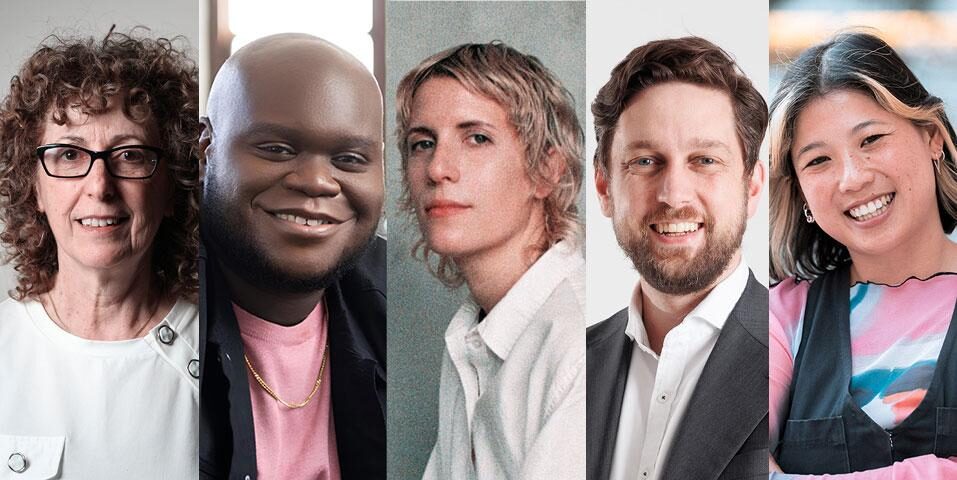With Artificial Intelligence (AI) set to reshape the creative industries, the Australian Film Television and Radio School (AFTRS) has announced the fourth Digital Futures Summit – a free, interactive online event focused on AI in the creative industries and education.
Featuring five sessions, Digital Futures Summit: AI and the Creative Horizon is an opportunity for leaders, educators and policymakers in the Australian and international screen and broadcast industries to discuss the impact, challenges and possibilities of technological change on labour, training and creativity. This fourth summit will bring together some of Australia and the world’s foremost AI thought leaders to discuss questions of creativity, pedagogy, ethics, Indigenous sovereignty and inclusion in the emerging age of AI.
The summit opens with a session on Learning with AI that explores AI’s relationship between artificiality and creative intelligence in creative industries education. Speakers at this session are Dr Teresa Crea, UNSW, School of Arts & Design, Professor Danny Liu, Professor in the Educational Innovation team in the DVC (Education) Portfolio at the University of Sydney, and Dr Miles Thorogood, Assistant Professor, Creative Studies, Media Studies, Visual Arts, University of British Columbia.
Critical Making: AI in Screen and Audio Education looks at the challenges and opportunities of AI in the classroom. This panel discusses case studies to provoke questions about creative practice-based learning, innovation in education, and consequences for access and inclusion. Speakers are AFTRS Discipline Lead, Production Design, Natalie Beak, Dr Ruari Elkington from QUT’s School of Creative Practice, and Majella Clarke, conductor, oboist, sound artist, SAE postgraduate lecturer and Artificial Intelligence Strategist based in Helsinki, Finland.
Augmented Creativity: AI in the Creative Industries convenes a panel of screen and audio industry leaders to explore some of the creative and commercial opportunities and challenges presented by AI. Panellists will discuss their own experiences working with AI and consider how AI tools are changing creative and industrial practices in their industries. Panellists are Yacht lead singer and author Claire L. Evans, Anton Andreacchio, Founder of the Convergen Group, a visual media company that works with new technologies to produce narrative works, Arul Baskaran, who leads the ABC Innovation Lab’s strategy team, and New York City-based Anthony Frasier, CEO of the kids and family podcast company ABF Creative.
Indigenous Sovereignty and AI: Storing Cultural Practices and Reclaiming Narratives through AI, Film, Radio and Beyond will look at ways Indigenous Sovereignty and Indigenous Knowledge (IK) systems can support the flourishing of future generations and optimise for abundance rather than scarcity. Speakers are Brett Leavy, director, Bilbie Virtual Labs, and Wiradjuri anti-disciplinary artist Joel Sherwood Spring.
The Summit will conclude with The Politics of AI: Navigating Ethics, Inclusion and Job Disruption in the Creative Industries. This session tackles artists’ labour rights, ownership protection and the risk of embedded biases in the development of AI tools, as well as concerns about the inclusivity of voices, diversity of knowledge, and future workforce development. Speakers are Angela Stengel, the Head of ABC’s Innovation Lab, Annabelle Sheehan, Professor of Practice, Television, Radio and Film at Syracuse University’s Newhouse School of Public Communications, Professor Jane Roscoe, President & Vice-Chancellor of the UK’s University for the Creative Arts and Dr Thao Phan Research Fellow with the People Program at the Centre of Excellence on Automated Decision and Society and the Emerging Technologies Research Lab at Monash University.
“Research is part of AFTRS’ remit, and we are committed to leadership in this space. In its fourth edition, the Digital Futures Summit will provide a vibrant platform for discussion and knowledge exchange with a dynamic myriad of voices,” said AFTRS Head of Research, Alejandra Canales. “This year, we have extended the conversation to encompass education as well as industry and, alongside discussions around creative and commercial applications, we’ll also be considering the implication of AI for areas like learning and Indigenous Sovereignty. As the national screen and broadcast school, we must address the complexities around AI while educating the next generation of creative leaders.”
Lead singer of the post-pop band Yacht and author, Claire Evans said:
“The role of artists has always been to metabolise technological and cultural change—to process and make sense of the future as it arrives. How will artists continue in this essential role as AI development accelerates, irrevocably changing the creative landscape? Will AI amplify our creative potential or leave us grasping for understanding? I’m excited to tackle these questions, and more, at AFTRS’ Digital Futures Summit.”
Anton Andreacchio, Convergen Group, said:
“New technology is usually associated with increases in efficiency or productivity, but advances in natural language generation strikes at the heart of the creative industries: the generation of intellectual property. This has significant implications at every level, from impacting creative careers and arts practices right through to legal, ethical, and governance challenges. We don’t yet know how this story will unfold.”
The ABC’s Angela Stengel said:
“The intersection between AI and the creative landscape brings great opportunities for creatives and for audiences, but also plenty of ethical considerations and potential risks. Exploring how artistic expression can be extended through the use of AI tools and navigating the complexities of IP is something we have to do – AI is here to stay. I’m excited to delve into all of this and more as a speaker at AFTRS’ Digital Futures Summit.”
To join Digital Futures Summit, presented online by AFTRS, guests must register for each session they wish to attend. Registration for all sessions is free.
